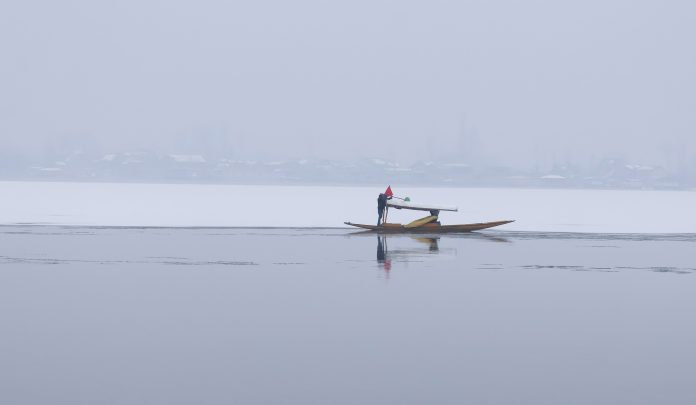SRINAGAR, Jan 2: Fresh snowfall occurred in the Kashmir Valley on Thursday as the cold wave continued unabated across J&K.
The Meteorological Department has forecast more rain/snow because of two back-to-back Western Disturbances (WDs) passing over J&K.
Click Here To Join Daily Excelsior on WhatsApp And Get Latest News
A MET department statement said, “Because of a feeble WD, generally cloudy weather with light snowfall at scattered places is likely to occur on January 2. On January 3, generally cloudy weather with light snow is expected at isolated higher reaches of J&K.”
“On January 4-6th, due to moderate to strong WD, generally cloudy weather with light to moderate rain in plains of Jammu and snow at most places of J&K with peak activity during January 4th night to 5th late night with improvement from 6th late afternoon,” it said.
The weather department has forecast generally dry cloudy weather from January 7-10.
In view of fresh snowfall, sub-freezing temperatures and icy conditions over roads (plains/higher reaches), tourists/travellers/transporters are advised to plan accordingly and follow Admin/Traffic advisory, it said.
It has predicted heavy snow at isolated higher reaches during January 4 to 6.
Srinagar recorded minus 2.6 degrees Celsius, Gulmarg minus 8.6 degrees Celsius and Pahalgam minus 4 degrees Celsius as the minimum temperatures on Thursday.
Jammu city registered 7.4 degrees Celsius, Katra town 9 degrees Celsius, Batote 4.6 degrees Celsius, Banihal 2.9 degrees Celsius and Bhaderwah 1.6 degrees Celsius as the night’s lowest temperature.
The 40-day-long period of intense winter cold called the ‘Chillai Kalan’ started on December 21 and will end on January 30.
Most lakes and other water bodies are presently frozen partially in the Valley.
Doctors have advised people not to expose themselves to long periods of cold. Children and elderly people have been especially warned to guard themselves against cold which constricts blood vessels resulting in myocardial infarction.
“This is responsible for heart attacks and heart failures globally in countries with cold weather. The risk becomes very high if a patient has respiratory ailments,” they said.


